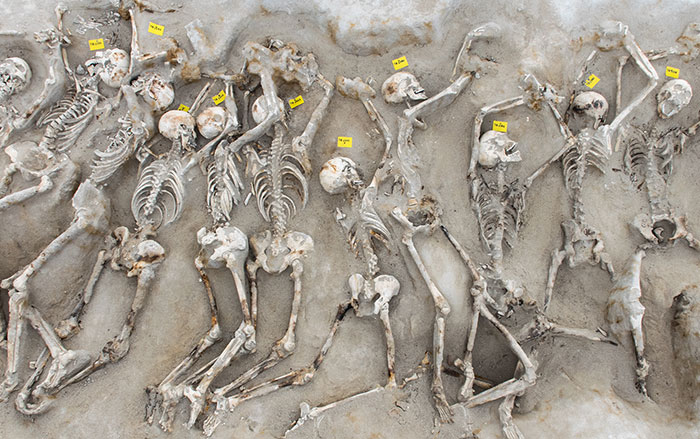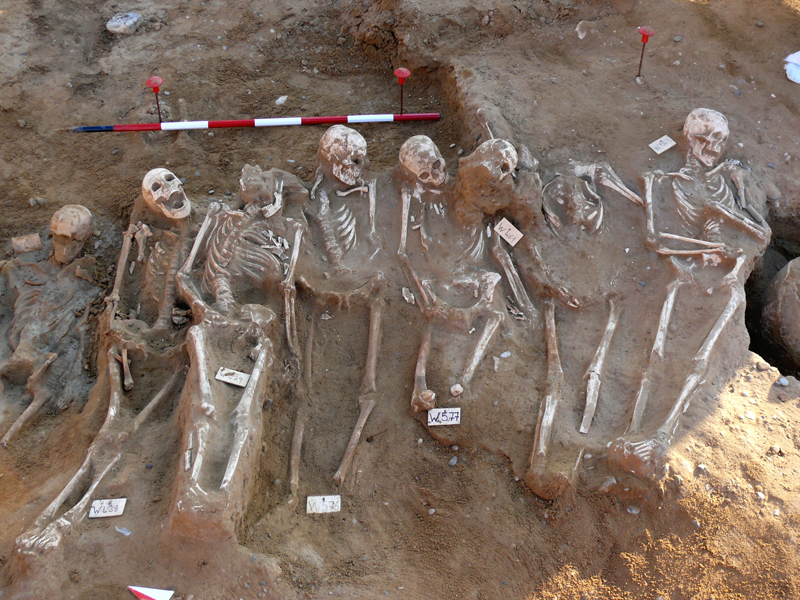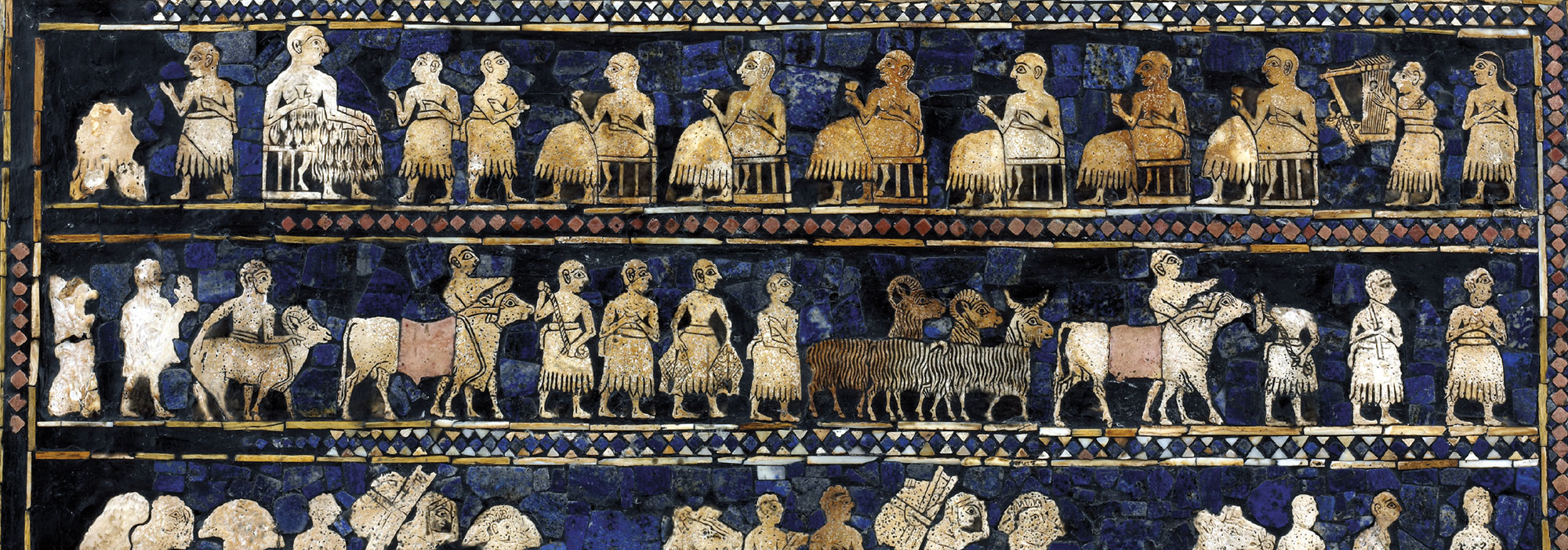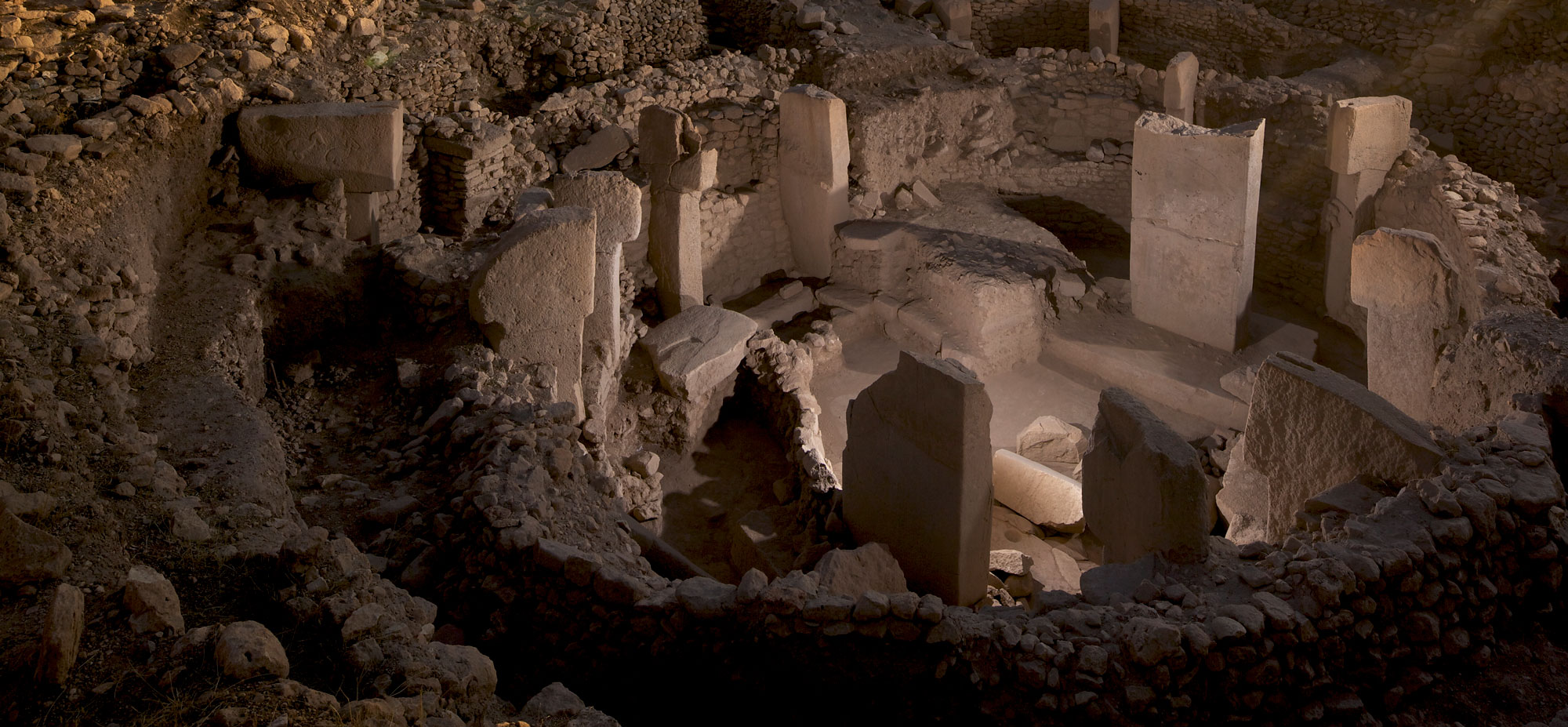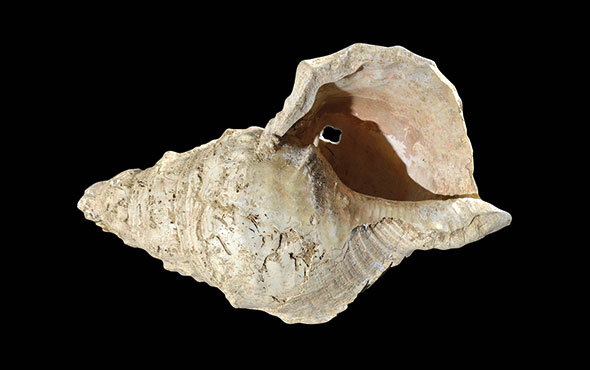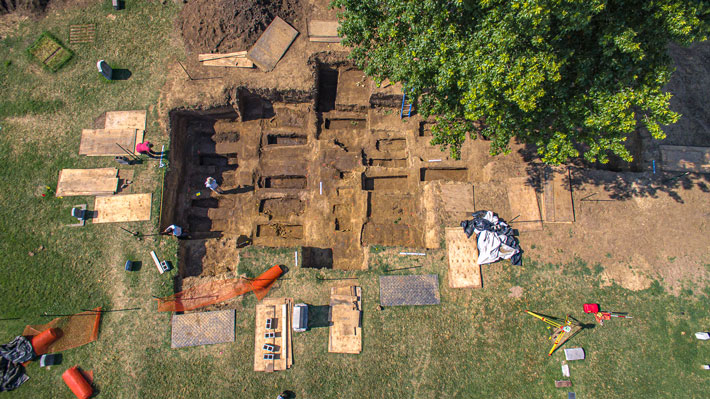
TULSA, OKLAHOMA—The Washington Post reports that the preliminary analysis of the remains of nine people from an unmarked mass grave in Tulsa’s Oaklawn Cemetery has been completed. The grave is thought to hold some of the victims of the 1921 Tulsa Race Massacre, in which an estimated 300 Black people were killed and 35 blocks in the affluent Black community of Greenwood, also known as “Black Wall Street,” were destroyed. Lead forensic anthropologist Phoebe Stubblefield said five of the nine sets of remains examined belonged to children. The other four individuals have been identified as an older woman and adults in their 30s and 40s. Stubblefield found a bullet lodged in the left shoulder of one of the men, who had suffered multiple projectile wounds. “Ancestry so far, when we can detect it, has been of African descent,” Stubblefield added. DNA analysis may allow the remains to be identified before they are reburied. “This process has been a very sobering and very powerful experience,” commented J. Kavin Ross, a descendant of a massacre victim and chair of the Mass Graves Public Oversight Committee. “We are hopeful for more findings…I’m anxious to give them a proper rest.” For more on the Tulsa Race Massacre, go to "A Sight Which Can Never Be Forgotten: The Tulsa Race Riot."



